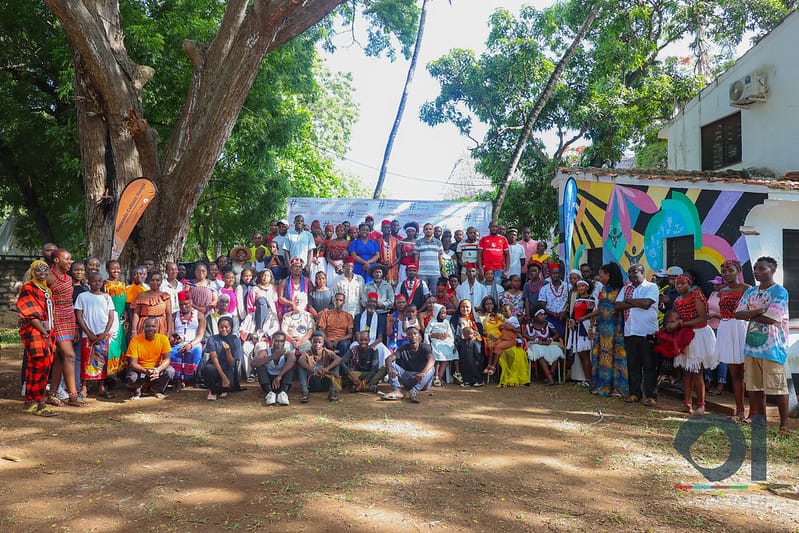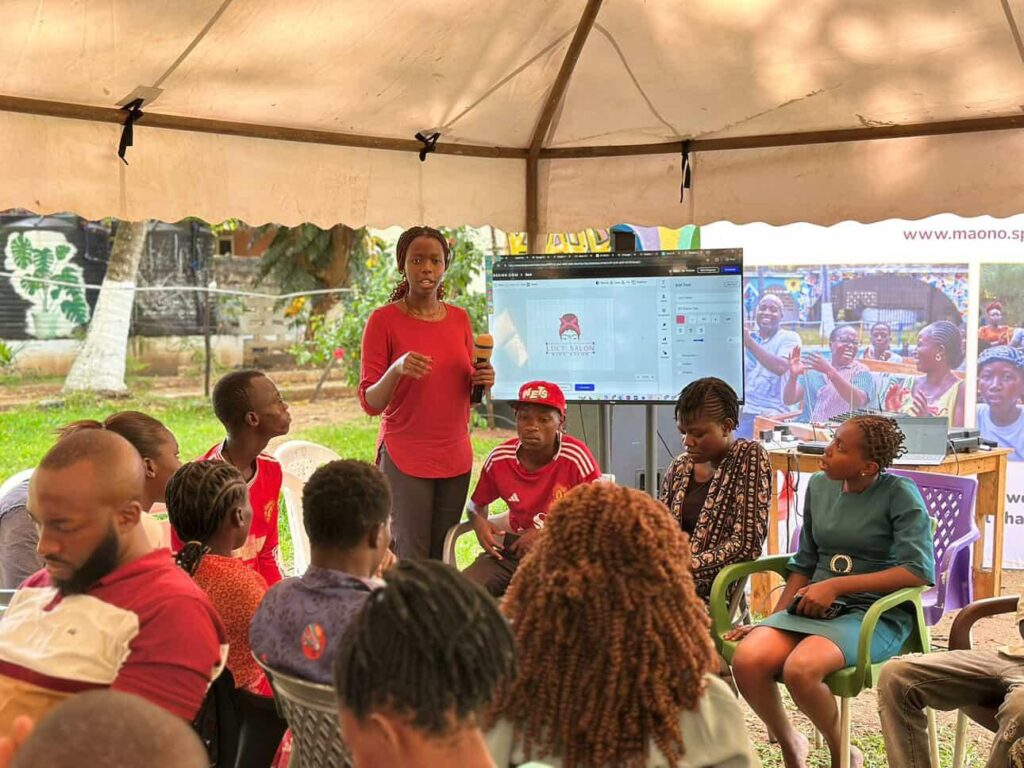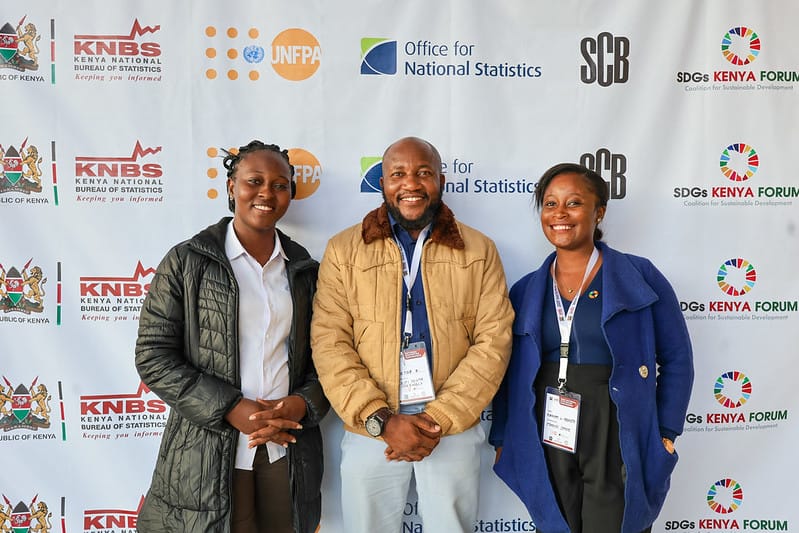Imagine a place that is usually busy with work meetings, discussions, and capacity-building workshops. Suddenly filled with bright colours, old songs, and the smell of delicious traditional food. This is what happened at Maono Space when Dhome Kikwetu came back for its second year. It was a lively celebration of culture, bringing everyone together to enjoy their roots and show their shared identity. This wasn’t just an event; it was a special experience, highlighting how important it is to celebrate who we are.
The name Dhome Kikwetu holds a deep meaning. “Dhome” refers to elders gathering to discuss the values and morals of men, sharing wisdom and guidance. “Kikwetu” speaks to the act of bringing our traditions together and blending them with other cultures, creating a vibrant mix. Together, they paint a picture of a warm, proud Kilifi where old ways meet new hopes and different cultures unite.
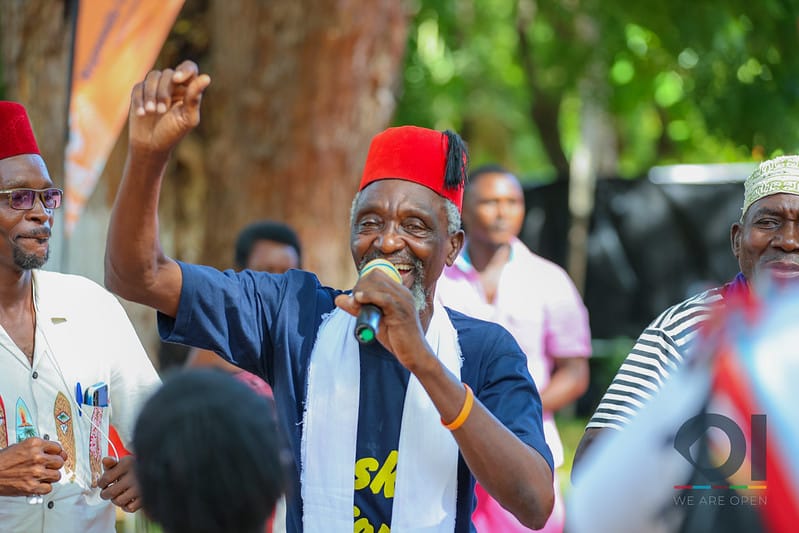
From early morning, Maono Space in Kilifi changed from a usual meeting place into a vibrant hub of cultural expression. Bright leso and vishutu (fabric) danced in the wind, music beat with an exciting rhythm, and the tasty smell of traditional dishes filled the air. People from all walks of life, 162 of them, arrived. Each person had their own story, representing different Kenyan tribes like the Kikuyu, Luo, Luhya, Bajuni, Giriama, Chonyi, Maasai, and Pokomo. They came together not as separate groups, but as one big, happy family. The main idea was “Art, Culture, and Heritage: Ways to Build the Kilifi We Want,” making the festival more than just an event; it was a dream coming true, showing how much communities need to celebrate their culture.
You could feel how important the event was, especially with leaders like Hon. Teddy Mwabire, Speaker of the County Assembly of Kilifi, Hon. Aisha Jumwa, Chairperson, Kenya Roads Board, Hon. Abdulrahman Omar, Hon. Mariam Mkumbi, Nominated MCA, and Hon. Grace Wambui, Nominated MCA, Minority Whip, there. Their presence showed that something truly meaningful was happening. Then came the elders, who hold so much wisdom. Mr. Mwarandu from the Malindi District Cultural Association spoke calmly and strongly, sharing the old stories of the Mijikenda people – their sacred places, family values, and wisdom passed down for ages. He told the young people that our identity isn’t just about the past or the future, but about connecting the two. Next to him, Mzee Famau Mohamed from the Anti-Drug Movement gently shared the beauty of Swahili culture. He painted pictures with words – of dhow boats, spices, poems, and being united. He encouraged the younger generation to be proud of who they are and to use technology to keep their culture alive and share it with others.
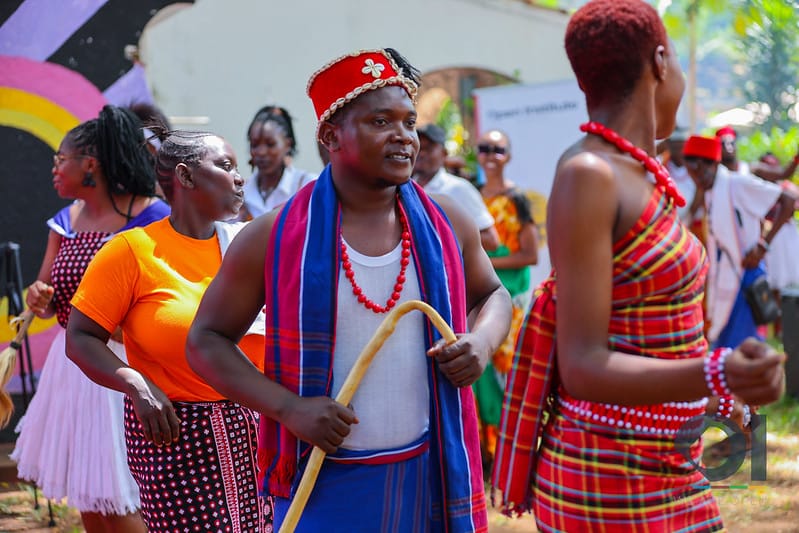
All around, the festival was full of life. Traditional dances from different communities lit up the stage. Cultural displays showed everything from old tools to beautiful beadwork, and from language samples to traditional clothes. Food was shared, stories were exchanged, and the lines between different tribes blurred into a feeling of belonging.
This amazing show of unity and cultural pride was possible because everyone worked together, each person adding their own spark to the fire. At the heart of it all was Azani Ngumbao from Girls to Women Initiative, whose dedication and vision anchored the entire celebration. Beside him stood a passionate committee of fellow changemakers – Prisilar Mwaura from VAALISHA Initiative, Haifa of Haifa Catering, Ahmed from Rising Star CBO, Esther Gamema and Mbarak, a thespian using art for change, and others who poured their time, skills, and heart into bringing Dhome Kikwetu to life.
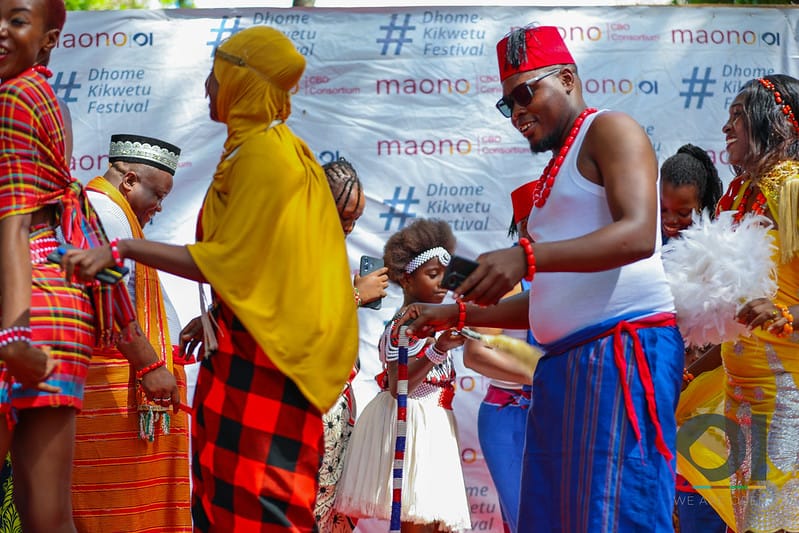
They worked hand in hand with the Maono Space changemakers, who took the lead in organising, setting up, performing, and telling stories. Local artists – photographers, content creators, actors, and volunteers – added their own creative energy, weaving together an event that was not just memorable, but deeply meaningful.
As the sun began to set, something big had changed. Strangers became friends. Gaps between old and young were filled. The youth weren’t just entertained; they were inspired. The stories shared weren’t just about what used to be; they showed the way forward. In those talks, dances, and shared meals, the seeds of a new cultural awakening were quietly planted.
Dhome Kikwetu did more than just celebrate culture. It created a moment of truth, where the community saw itself not through problems or divisions, but through pride, potential, and a shared goal.
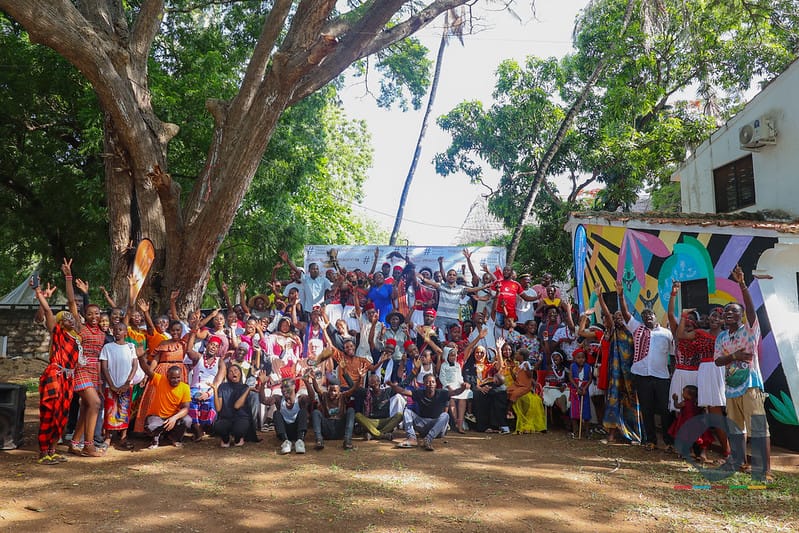
As the last drumbeat faded and the final plates were cleared, the changemakers met again at Maono Space. This time, they weren’t just dreaming; they were making plans. Ideas came from the day’s energy, showing a strong desire to make this cultural movement even bigger: they talked about getting tribal leaders involved even earlier, creating digital archives to save this rich heritage, inviting more schools to teach cultural pride from a young age, and making partnerships to turn Kilifi into a top cultural tourism spot.
This was not the end. This was the start of a new way of living our culture – not as something we just look back at, but as something we carry with us into the future.

